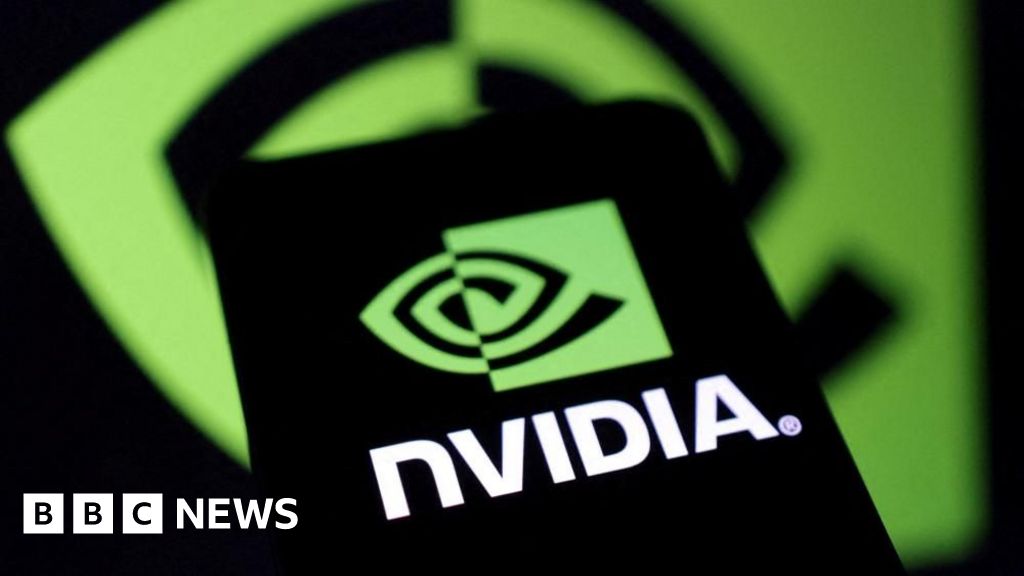Nvidia Shares Rise as China Export Curb Impact Assessed Less Severe

Nvidia reported strong first-quarter results, exceeding Wall Street expectations, despite challenges from U.S. export controls on China. The company, a key player in the AI chip market, announced earnings of 96 cents per share on sales of $44.06 billion for the quarter ending in April, representing a 69% year-on-year revenue increase. The better-than-expected results were partly attributed to customers stockpiling AI chips ahead of new U.S. export restrictions to China taking effect.
However, these U.S. export controls, particularly on Nvidia’s H20 chips (the only AI processors it could legally export to China), significantly impacted its financial outlook. Nvidia expects revenue of about $45 billion in the fiscal second quarter, which includes an anticipated loss of $8 billion in expected sales of H20 chips that would have been shipped to China. In the first quarter, the company took a $4.5 billion charge related to excess H20 inventory due to these restrictions. Nvidia stated it would have sold an additional $2.5 billion in chips in Q1 if not for these restrictions. Despite the restrictions, H20 chips generated $4.6 billion in sales in the first quarter, and China accounted for 12.5% of Nvidia's overall revenue in that period.
Nvidia CEO Jensen Huang maintained a positive outlook, emphasizing the "incredibly strong" global demand for Nvidia's AI infrastructure. He highlighted that "AI inference token generation has surged tenfold in just one year," and predicted that as AI agents become mainstream, the demand for AI computing will accelerate. Huang also noted that "countries around the world are recognizing AI as essential infrastructure — just like electricity and the internet," positioning Nvidia at the center of this transformation. Addressing the U.S.-China policy, Huang expressed concerns about Nvidia potentially being cut off from China's large AI developer base and acknowledged China's sophisticated and advancing chip industry. He also praised U.S. President Donald Trump’s recent move to rescind a so-called "AI diffusion rule" that would have regulated global flows of U.S. AI chips, stating, "President Trump wants America to win. And he also realizes that we're not the only country in the race." Huang confirmed that Nvidia's Hopper chips could no longer be modified for the Chinese market but did not comment on its newer Blackwell chips for China, though reports suggest Nvidia is preparing a Blackwell variant for that market.
Following the earnings release, Nvidia's stock jumped, rising 4-5% in after-hours trading as investors digested the news that the financial hit from China export curbs in the current quarter was not as severe as some had feared. Despite this, the stock has been relatively flat year-to-date in 2025, a contrast to 2024 when its shares nearly tripled. A significant bright spot for Nvidia was its data center business, which saw proceeds jump 73% year-on-year to $39.1 billion in the first quarter, compared to analyst estimates of $39.3 billion according to LSEG data.
Nvidia remains at the forefront of the current AI boom, with major technology companies including Google, Microsoft, Meta, Amazon, OpenAI, and Elon Musk’s xAI relying on its chips to power their complex large language models and AI tools. These tech giants, specifically Microsoft, Amazon, Meta, and Google, are expected to spend a combined $345 billion in the current year as they invest heavily in the AI race.
While facing challenges in the Chinese market, Nvidia is exploring new avenues for growth. The company signed new deals in the Middle East, including projects in the United Arab Emirates and Saudi Arabia, as well as in Taiwan. One notable project involves the initial phases of a 10-square-mile data center site in the UAE, which could eventually utilize 5 gigawatts of AI infrastructure. Nvidia’s Chief Financial Officer, Colette Kress, indicated a strong future pipeline, stating, "We have a line of sight to projects requiring tens of gigawatts of Nvidia AI infrastructure in the not-too-distant future." The company reported $29.8 billion in commitments to have its products manufactured.
Analysts noted that the overall impact of the H20 restrictions was less than initially feared. Gil Luria, an analyst with D.A. Davidson, suggested that Chinese buyers stocking up on H20 chips ahead of the restrictions helped bolster Nvidia's April quarter performance. Regarding earnings per share for the first quarter, Nvidia reported 96 cents on an adjusted basis, excluding charges. Including charges, the adjusted EPS was 81 cents. Wall Street estimates for adjusted quarterly earnings had varied, with an average around 93 cents per share according to LSEG data, reflecting uncertainty around the impact of the China restrictions.
For the fiscal second quarter, Nvidia issued a revenue forecast of $45 billion, plus or minus 2%. This forecast, which includes the anticipated $8 billion loss in H20 revenue due to export limitations, was slightly below analysts' average estimate of $45.90 billion. Despite the company's resilience, broader concerns persist. Emarketer analyst Jacob Bourne commented that "trade tensions and potential tariff impacts on data center expansion could create headwinds for AI chip demand in upcoming quarters," adding that while this doesn't signal an end to Nvidia's dominance, "sustaining it will require navigating an increasingly complex landscape of geopolitical, competitive, and economic challenges." Nvidia faces ongoing challenges from trade restrictions and a maturing AI data center market.








